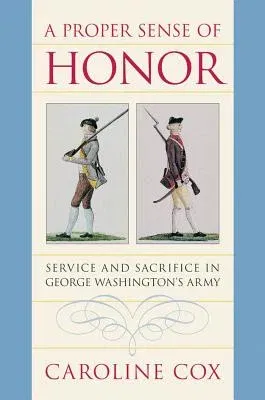Starting with the decision by patriot leaders to create a corps of
officers who were gentlemen and a body of soldiers who were not,
Caroline Cox examines the great gap that existed in the conditions of
service of soldiers and officers in the Continental army. She looks
particularly at disparities between soldiers' and officers' living
conditions, punishments, medical care, burial, and treatment as
prisoners of war. Using pension records, memoirs, and contemporary
correspondence, Cox illuminates not only the persistence of hierarchy in
Revolutionary America but also the ways in which soldiers contested
their low status.
Intriguingly, Cox notes that even as the army reinforced the lines of
social hierarchy in many ways, it also united soldiers and officers by
promoting similar conceptions of personal honor and the meaning of rank.
In fact, she argues, the army fostered social mobility by encouraging
ambitious men to separate themselves from the lowest levels of society
and giving them the means to enact that separation. At a time when
existing social arrangements were increasingly challenged by war and by
political rhetoric that embraced the equal rights of men, Cox shows that
change crept slowly into American military life.
Armies are the product of the societies that create them. In 1775, when
patriot leaders formed the Continental army, they were informed by their
own experiences and their knowledge of the British army. Thus, the
Continental Congress created a corps of officers who were gentlemen and
a body of soldiers who were not. Caroline Cox shows that, following this
decision, a great gap existed in the conditions of service between
soldiers and officers of the Continental army. Her study of daily
military life, punishment and military justice, medical care and burial
rituals illuminates the social world of the Continental army and shows
how every aspect of life reinforced the distinctions of rank. At a time
when existing social arrangements were increasingly challenged by war
and political rhetoric that embraced the equal rights of men, Cox shows
that change crept slowly into American military life.


